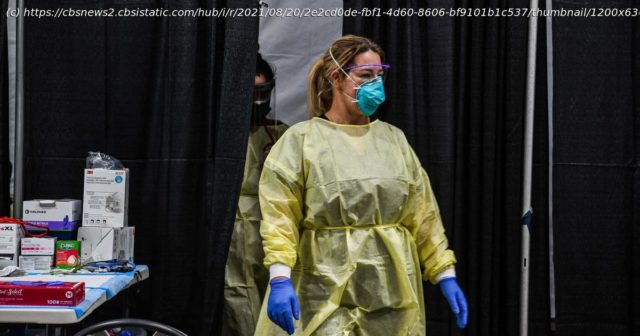Answers to some of the frequently asked questions about the virus, breakthrough infections and booster shots.
Since the Delta variant was first spotted in India in late 2020, it has quickly accelerated to make up nearly all the coronavirus cases currently in the United States. Though public health officials say the vaccines currently remain effective against this strain of the virus, Delta’s rapid spread has prompted a rethinking of plans to ease restrictions and a strengthening of in many communities. Worries of waning effectiveness against the strain also led to the Biden administration announcing plans to offer booster shots to Americans starting in September. Meanwhile, the national vaccination effort is once again showing signs of slowing. Just over half of the American population is fully vaccinated, far short of the elusive “herd immunity” some hoped the country would reach by the end of the summer. Seven states have yet to complete vaccinations in even 40% of their residents. Here are some answers to some frequently asked questions, as the Delta variant is now shifting America’s plans for the pandemic’s second autumn. Severe cases remain rare, but mild infections are less uncommon. While health officials say current data suggests the vaccines remain highly effective against severe disease, hospitalizations and death, spiking cases in the community and waning immunity from the vaccines have led to a growing number of fully vaccinated Americans reporting of so-called of COVID-19. Before the current surge in Delta variant cases, a preliminary calculation by the CDC estimated that more than 51,000 symptomatic cases of breakthrough infections had occurred among 77 million fully vaccinated people through April. Leaked slides from the CDC last month estimated that the pace of these symptomatic breakthrough cases had climbed to 35,000 per week among 162 million vaccinated Americans. But a study released by the CDC this month found overall vaccine effectiveness against any infection appeared to drop further than many had previously expected through late July, down to 79.8% overall as the around the country. In nursing homes, whose residents are especially vulnerable, the CDC estimated that the effectiveness of two doses of the Pfizer and Moderna shots against infection may have declined to 53.1%. Those findings helped lead to the Biden administration’s decision to recommend starting in September for most Americans eight months after their second dose. By the end of August or early September, federal health officials hope. The Biden administration’s top health experts have predicted that, given the overwhelming real-world evidence of the safety and effectiveness of vaccines from Pfizer, Moderna and Johnson & Johnson, it is inevitable the vaccines will eventually win full approval from the Food and Drug Administration. (They currently have what the FDA calls Emergency Use Authorization.) However, FDA leaders have cautioned that — even with “sprint teams” deployed to accelerate inspections and detailed reviews of the drugmaker’s data — moving the COVID-19 vaccines to full approval might not happen overnight. Vetting each vaccine license application could take three to four months: the government must work with the drugmaker to resolve issues flagged at detailed inspections of vaccine factories around the world and examine the now massive safety monitoring databases for each shot.
Home
United States
USA — Science What to know about COVID-19, the Delta variant and vaccines as fall...






